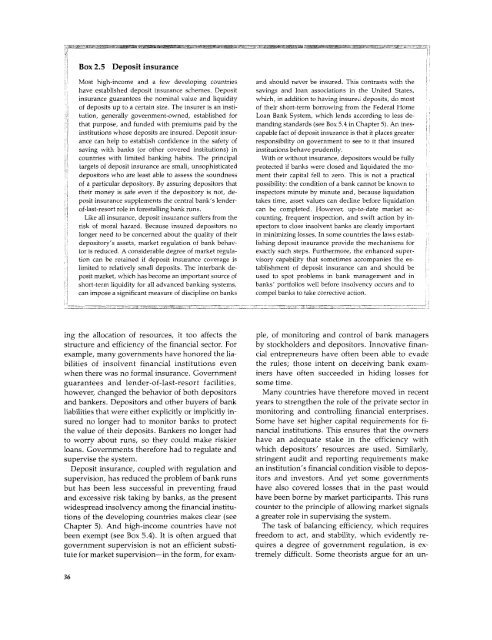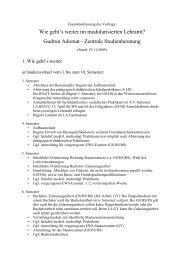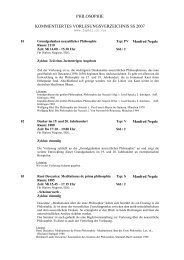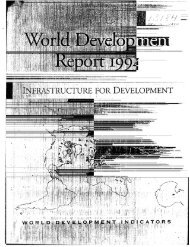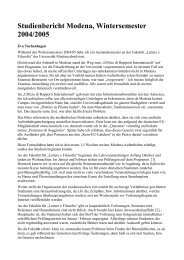Financial systems and development
Financial systems and development
Financial systems and development
You also want an ePaper? Increase the reach of your titles
YUMPU automatically turns print PDFs into web optimized ePapers that Google loves.
Box 2.5 Deposit insurance<br />
Most high-income <strong>and</strong> a few developing countries <strong>and</strong> should never be insured. This contrasts with the<br />
have established deposit insurance schemes. Deposit savings <strong>and</strong> loan associations in the United States,<br />
insurance guarantees the nominal value <strong>and</strong> liquidity which, in addition to having insureu deposits, do most<br />
of deposits up to a certain size. The insurer is an insti- of their short-term borrowing from the Federal Home<br />
- tution, generally government-owned, established for Loan Bank System, which lends according to less dethat<br />
purpose, <strong>and</strong> funded with premiums paid by the m<strong>and</strong>ing st<strong>and</strong>ards (see Box 5.4 in Chapter 5). An inesinstitutions<br />
whose deposits are insured. Deposit insur- capable fact of deposit insurance is that it places greater<br />
ance can help to establish confidence in the safety of responsibility on government to see to it that insured<br />
saving with banks (or other covered institutions) in institutions behave prudently.<br />
countries with limited banking habits. The principal With or without insurance, depositors would be fully<br />
targets of deposit insurance are small, unsophisticated protected if banks were closed <strong>and</strong> liquidated the modepositors<br />
who are least able to assess the soundness ment their capital fell to zero. This is not a practical<br />
of a particular depository. By assuring depositors that possibility: the condition of a bank cannot be known to<br />
their money is safe even if the depository is not, de- inspectors minute by minute <strong>and</strong>, because liquidation<br />
* posit insurance supplements the central bank's lender- takes time, asset values can decline before liquidation<br />
of-last-resort role in forestalling bank runs. can be completed. However, up-to-date market ac-<br />
Like all insurance, deposit insurance suffers from the counting, frequent inspection, <strong>and</strong> swift action by inrisk<br />
of moral hazard. Because insured depositors no spectors to close insolvent banks are clearly important<br />
longer need to be concerned about the quality of their in minimizing losses. In some countries the laws estabdepository's<br />
assets, market regulation of bank behav- lishing deposit insurance provide the mechanisms for<br />
lor is reduced. A considerable degree of market regula- exactly such steps. Furthermore, the enhanced supertion<br />
can be retained if deposit insurance coverage is visory capability that sometimes accompanies the eslimited<br />
to relatively small deposits. The interbank de- tablishment of deposit insurance can <strong>and</strong> should be<br />
posit market, which has become an important source of used to spot problems in bank management <strong>and</strong> in<br />
short-term liquidity for all advanced banking <strong>systems</strong>, banks' portfolios well before insolvency occurs <strong>and</strong> to<br />
can impose a significant measure of discipline on banks compel banks to take corrective action.<br />
ing the allocation of resources, it too affects the ple, of monitoring <strong>and</strong> control of bank managers<br />
structure <strong>and</strong> efficiency of the financial sector. For by stockholders <strong>and</strong> depositors. Innovative finanexample,<br />
many governments have honored the lia- cial entrepreneurs have often been able to evade<br />
bilities of insolvent financial institutions even the rules; those intent on deceiving bank examwhen<br />
there was no formal insurance. Government iners have often succeeded in hiding losses for<br />
guarantees <strong>and</strong> lender-of-last-resort facilities, some time.<br />
however, changed the behavior of both depositors Many countries have therefore moved in recent<br />
<strong>and</strong> bankers. Depositors <strong>and</strong> other buyers of bank years to strengthen the role of the private sector in<br />
liabilities that were either explicitly or implicitly in- monitoring <strong>and</strong> controlling financial enterprises.<br />
sured no longer had to monitor banks to protect Some have set higher capital requirements for fithe<br />
value of their deposits. Bankers no longer had nancial institutions. This ensures that the owners<br />
to worry about runs, so they could make riskier have an adequate stake in the efficiency with<br />
loans. Governments therefore had to regulate <strong>and</strong> which depositors' resources are used. Similarly,<br />
supervise the system.<br />
stringent audit <strong>and</strong> reporting requirements make<br />
Deposit insurance, coupled with regulation <strong>and</strong> an institution's financial condition visible to depossupervision,<br />
has reduced the problem of bank runs itors <strong>and</strong> investors. And yet some governments<br />
but has been less successful in preventing fraud have also covered losses that in the past would<br />
<strong>and</strong> excessive risk taking by banks, as the present have been borne by market participants. This runs<br />
widespread insolvency among the financial institu- counter to the principle of allowing market signals<br />
tions of the developing countries makes clear (see a greater role in supervising the system.<br />
Chapter 5). And high-income countries have not The task of balancing efficiency, which requires<br />
been exempt (see Box 5.4). It is often argued that freedom to act, <strong>and</strong> stability, which evidently regovernment<br />
supervision is not an efficient substi- quires a degree of government regulation, is extute<br />
for market supervision-in the form, for exam- tremely difficult. Some theorists argue for an un-<br />
36


